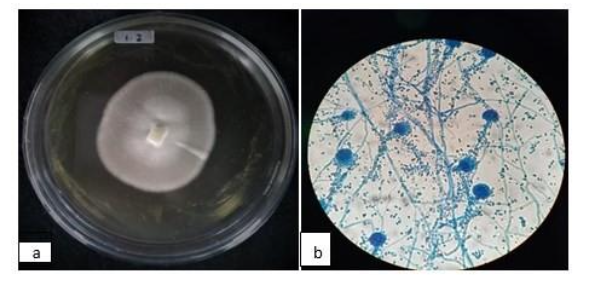Isolation and test of the ability of fungi to degredate polyethylene plastic from landfill plunges
Main Article Content
Abstract
Polyethylene is one type of plastic that is widely used. The long carbon chain bonds make plastic difficult to decompose. Handling that can be done to minimize the problem of plastic waste is biodegradation. The purpose of this study was to determine the type of plastic-degrading fungi isolated from the Waterfall landfill and to determine its ability to degrade polyethylene plastic. The first method of this research was the isolation of fungi from the Waterfall landfill, then screening was carried out to obtain potential isolats and obtained 4 fungal isolates namely PME1, PME2, PME3 and PML2 based on their growth response on salt medium (MSM) agar containing LDPE powder. Based on their morphological characteristics, isolates PME1, PME2 and PME3 as the genus Aspergillus sp. and PML2 fusarium. Then tested for biodegradability. The assessment was carried out by measuring the weight loss of LDPE sheet after biodegradation treatment. Data analysis using one way Anova and Duncan test. The result is that all isolates have an effect on reducing plastic weight. The isolat with the highest degrading ability after an incubation period of 40 days was Asp1 isolat with a plastic weight loss percentage of 2.23%, Asp2 of 1.78%, Fus1 of 1.03% and Asp3 of 0.74%.
Article Details

This work is licensed under a Creative Commons Attribution-ShareAlike 4.0 International License.

